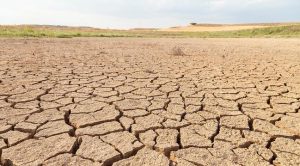In a message from the Nigerian Environmental Study/Action Team (NEST) Secretariat to commemorate the 2024 World Environment Day themed “Land Restoration, Desertification and Drought”, the group insists that the theme paves the way to a sustainable future, and serves as a call for commitment at all levels to address desertification and drought

World Environment Day 2024 shines a spotlight on pressing global challenges of land restoration, desertification, and drought resilience. As climate change intensifies, these challenges have become critical to ensuring food security, biodiversity, and sustainable livelihoods. Desertification and land degradation affect nearly one-third of the world’s land area, impacting over 250 million people directly and threatening the livelihoods of more than one billion people in over 100 countries.
These challenges are also exacerbated by unsustainable land use practices, including deforestation, unwholesome farming practices and poor waste management, thus leading to reduced agricultural productivity, food insecurity, and loss of biodiversity.
Efforts to combat land degradation and restore ecosystems are gaining momentum globally. First, is the UNCCD’s call to integrate Land Degradation Neutral (LDN) into relevant sectoral policies, development plans and programs in order to create an enabling environment for investment opportunities, especially on land. And benefits envisaged include: enhancing land productivity, addressing climate change issues, promoting poverty reduction, creating green jobs, facilitating the resolution of land-use-based conflicts, reducing environmental migration, and achieving food, water, energy and human securities.
Another notable initiative is the African Great Green Wall, which aims to restore 100 million hectares of degraded land across 11 countries in the Sahel by 2030. This ambitious project not only aims to halt the advance of the Sahara Desert but also improve food security and create millions of jobs. By implementing sustainable land management practices, several projects have restored vegetation, improved soil health, and increased agricultural yields, demonstrating the potential for large-scale ecological restoration.
Drought resilience is crucial for communities vulnerable to the impacts of climate change. Innovative water management practices, such as rainwater harvesting, efficient irrigation techniques, and drought-resistant crop varieties, are key to enhancing resilience. For instance, the use of “Zai pits” in Burkina Faso has significantly improved water retention and crop yields in arid regions.
Some research and initiatives demonstrate innovative approaches and strategies that offer hope and actionable solutions. For instance, integrating traditional knowledge with modern technologies can provide sustainable solutions. Indigenous practices, such as agroforestry and polyculture, combined with modern forecasting tools, help communities adapt to changing climatic conditions and reduce vulnerability to droughts.
Effective land restoration and drought resilience require supportive policies and active community engagement. Policies promoting sustainable land use, providing financial incentives for restoration projects, and supporting research and innovation are essential. Additionally, engaging local communities in the planning and implementation of restoration projects ensures that interventions are culturally appropriate and sustainable.
As we celebrate the World Environment Day 2024, it is crucial to recognise the importance of land restoration, desertification, and drought resilience in achieving sustainable development. And noting that through innovative approaches, community engagement, and supportive policies, we can restore degraded lands, build resilience to climate change, and ensure a sustainable future for generations to come.
In addition, recent initiatives and research have provided blueprints for success, highlighting the potential of combining traditional knowledge with modern technology and fostering global cooperation. So, by prioritising these efforts, we can turn the tide on land degradation and build a more resilient world through our individual local actions.
